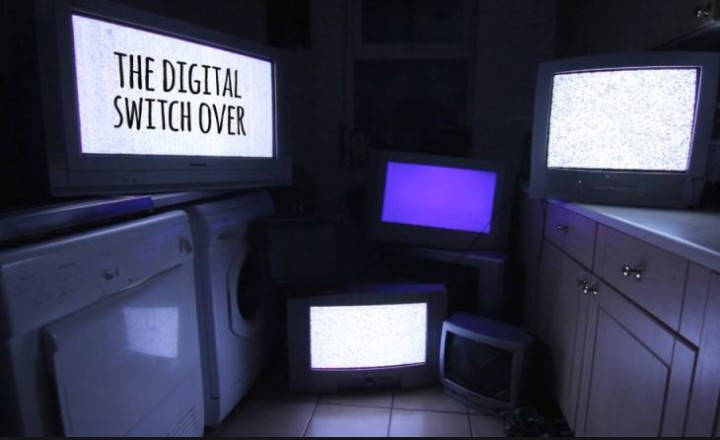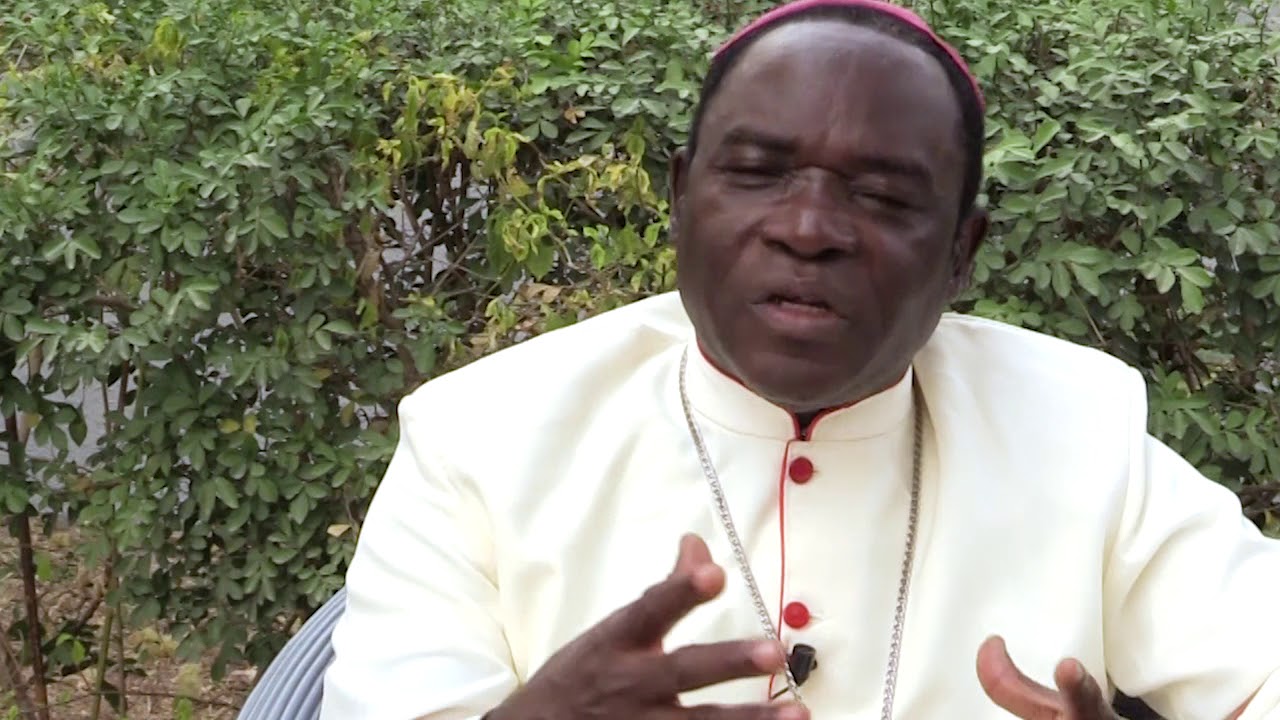Nigeria Digital Switch-over Infrastructure, Coverage To Gulp N45bn
For Nigeria to migrate from analogue to digital television broadcasting in line with the digital switch over (DSO) deadline of June 17,2027, the country requires at least N45 billion funding to guarrante adequate infrastructure which is very crucial to achieving the DSO deadline.
Engr. Rotimi Salami, Managing Director of Integrated Television Services (ITS), one of the signal distributors licensed by the National Broadcasting Commission (NBC) speaking during the visit of the House Committee on Information, National Orientation, Ethics and Values led by its Chairman, Hon. Olusegun Odebunmi, to ITS office in Jos, Plateau State, said it the above funding challenge is met to deploy state-of-the-art digital infrastructure , the country will have digital TV coverage nationwide.
Salami said “Generally, the challenge we are having is funding and government money is not just spent anyhow you want, there is a process and this process is guided by principles. For example, we inherited infrastructure from the NTA but we need to replace analogue equipment. We have to install infrastructure and we need N45 billion to put effective infrastructure that will cover Nigeria, we need support to realize our goal. He commended the House Committee for the visit, stating that “The coming of the House Committee on Information on oversight visit is a welcome development because the migration process will be smoother than it presently is.
During the visit, the committee members also expressed concerns about how the new deadline would be met with almost all relevant parties to the project having one complaint or the other. They also declared the whole process illegal as it lacks legislation and National Assembly approvals for funds already spent. The Odebunmi-led committee which visited the zonal offices of the NTA, NBC and ITS in Jos, said that it discovered among other challenges that there is no law backing the DSO as the International Telecoms Union, ITU treaty signed by Nigeria as a member country has not been domesticated in the National Assembly. Similarly, it also discovered lack of funds as an impediment, considering that there has been no appropriation for the DSO since inception of the process and even the 2017 budget makes no provision for such activity.
According to Odebunmi: “With the ongoing recession and subsidy paid per set-top box for the 30 million projected beneficiaries, one wonders how N45 billion required to put effective infrastructure which will cover the entire country and give good signals would be realized. Odebunmi and his colleagues frowned at the process saying, “the national assemblies in other African countries are being carried along but that is not the case in Nigeria.” According to them operating based solely on executive policy or order will make the programme difficult to sustain. “There are lots of work to do, what are the plans to cover the entire country as the National Assembly is not informed about the issue of set top boxes and a bill has not even been introduced to enable its passage for us to switch-over.” Since there has been no legal backing for the entire process, the lawmakers wondered where the money so far spent on the process was coming from saying, “this process is not backed by law hence there is no budget for it, there is a lacuna. For the lawmakers, this means the money spent on subsidizing the set-top boxes are funds released illegally. If it is legal, it ought to have been accommodated in the budget proposal.”
He further noted that the visit was not to witch-hunt anyone but “our coming to Jos means we mean business. What we met here are challenges upon challenges and we are trying to see how we can work together with the Executive especially with the Information Minister to see how we can solve the problem of digital switch-over. We are sure that working together with the Executive, we are going to overcome the challenges. “Another part of the challenge which we are asking is, can NTA meet up with the deadline of June, 2017 with these challenges on ground? But that will not stop us from moving on, the commitment of the President is that we must meet the deadline but as long as we are moving, many others will be joining as we look for ways to meet up. As regarding the set top boxes, that is the process, if you are awarded a contract, there will be a time for payment.
In his remarks, the director general , NBC, Mallam Is’haq Modibbo Kawu stated that, “Nigeria has made a commitment to this transition process; it’s a huge logistic process for Nigeria and one that will help us to change forever the face of television broadcasting in our country.”
“Nigeria paid to import the very first sets of set top boxes, 650, 000. And the total for that was $26 million, and these boxes were subsidized by Government. That is why we are selling them at N1,500. Now, moving forward, the question is: Can Nigeria continue, realistically, given the state of the economy, to subsidize the boxes around the Country? It’s a question we are asking ourselves. We all know that, honestly, it would be very difficult.”
“As of this morning, Nigeria’s population is about 189 million. And the whole idea of a digital switch over is that we must be able to cover 95 per cent of the country. Imagine about 180million people, watching television. That would be the success. So we need about 30 million boxes for Nigeria if we assume that a television household is a man, one wife, and four children. It’s a 6-person’s household. So if we look at 30 million boxes, and multiply that by $40 which is the cost for one box in the present ecosystem, maybe we would need the entire budget of Nigeria to achieve 30 million boxes.”
The DG also pointed out that the Commission also has to pay for the cost of putting the aggregated contents on the satellite; and also pay the transmission companies (ITS and Pinnacle Communications Ltd.) for carrying these programmes 24 hours, daily; and pay the call centres. He added that it is a process that is very expensive, but in the long run, would be to the benefit of Nigeria because the system would help deepen democracy since it creates the platform for interaction between the people and the Government.
In addition to these challenges, the Set-Top Box manufacturers, are also crying that the NBC was frustrating the process by holding back payment for the Set-Top Boxes even though the Federal Government released the necessary funds long ago. A reliable source from the Association of Set-Top Box Manufacturers, (STBMAN) however revealed that the NBC had promised to release the funds, and warned that reneging on this promise would mean that the commission was not keen on the success of the whole process. “This non-payment is impacting heavily on our ability to raise funds, especially loans from banks and consequently, our ability to continue manufacturing. However, it is still possible for us to meet the deadline of June 2017 if the NBC makes payment this week as promised” the source said. Time for payment
“There are challenges even in the lack of legislation to back up the process but that is why I said we are in the process, Nigeria is ours and the legislators are Nigerians so whatever we can do to make sure Nigeria is moving on, definitely, we will do it. I’m sure we will overcome the problems.”
While the ITS which acquired analogue equipment from the Nigerian Television Authority, NTA distributes signal in Plateau State, the Pinnacles does same in Abuja, the Federal Capital Territory but Nigerians largely express dissatisfaction with services rendered as the set-top box still give poor signals in Jos the Plateau State capital and non-connection in surrounding local government areas. As efforts are being made to meet the said deadline, the challenges faced outweigh the successes achieved as relevant stakeholders call for accelerated engagements to fast-track the processes of meeting the deadline. The chairman of the DigiTeam saddled with the responsibility of ensuring a smooth transition from analogue to digital TV broadcast, Engr. Edward Amana observed that the process has been besieged by what he termed “political problems” stressing “we failed to meet deadline in the past because of no allocation.”
His words, “We have mapped out how this process will positively impact on our economy, 30 million set top boxes are required and 13 companies have been licensed to manufacture them locally. We expect 29,000 direct employments for our young people, we are trying to evolve the industries and any set top box illegally imported outside the country won’t work in Nigeria. “The pilot scheme in Jos on April, 2016 was a testing ground to see what it entails, the distribution of the set top boxes was another lesson learnt. Abuja roll out handled by the Pinnacle Nigeria Ltd was another experience, now we are deliberating on how to simultaneously move to six states across the six geopolitical zones, we need allocation or appropriation to the digitalization process.”




